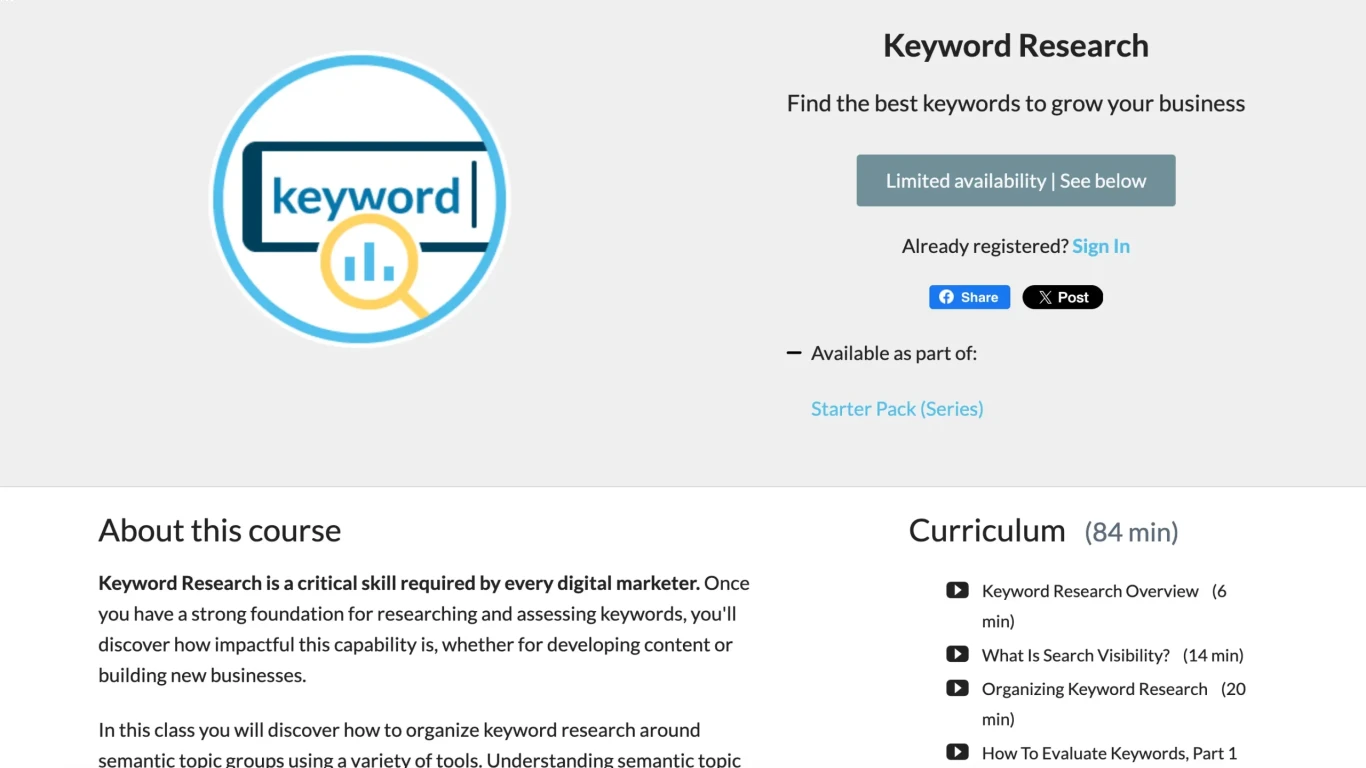Mastering Keyword Research for a Powerful SEO Website
Mastering Keyword Research for a Powerful SEO Website
In this digital era, mastering keyword research is crucial for crafting a website that doesn't just exist, but thrives. With the ever-evolving algorithms of search engines like Google, staying on top of keyword trends and knowing how to effectively use them can skyrocket your site's visibility and success. So, let's dive deep into the world of keyword research and turn your website into a powerhouse.
Understanding the Importance of Keyword Research in SEO
Keyword research is the backbone of Search Engine Optimization (SEO). It's all about identifying the terms and phrases that people are searching for on the internet. By understanding what potential visitors are interested in, you can tailor your content to meet their needs and increase your chances of showing up in search results.
How to Get Started with Keyword Research: Basic Tips and Tools
Before you embark on your keyword research journey, you need to have a toolkit. Here are some basics to get you started:
- Google Keyword Planner: A free tool to find keywords related to your business.
- SEMrush: Offers a more detailed analysis including competitor keyword analysis.
- AHrefs: Another powerful tool for detailed keyword data and competitor insights.
- Ubersuggest: Ideal for beginners, providing essential keyword data and suggestions.
The Process of Identifying the Right Keywords for Your Website
Identifying the right keywords isn't just about picking any popular term. It's about finding the ones that match your content and target audience. Here’s a simple step-by-step process:
- Brainstorm Keywords: Start with a list of topics relevant to your business.
- Use Keyword Tools: Enter these topics into keyword tools to find related terms.
- Analyze Search Volume: Look for keywords with high search volume.
- Check Competitiveness: Find keywords that are not overly competitive.
- Consider Search Intent: Ensure the keywords align with the user's search intent.
Long-Tail Keywords: Why They Are Your Secret Weapon
Long-tail keywords are longer, more specific phrases that visitors are more likely to use when looking for something specific. They may have lower search volumes but they often have higher conversion rates. For example, instead of "shoes," a long-tail keyword would be "best running shoes for flat feet."
How to Analyze Your Competitors Using Keyword Research
Understanding what keywords your competitors are ranking for can give you an edge. Using tools like SEMrush or AHrefs, you can uncover the keywords that are driving traffic to their sites and find opportunities they may have missed.
Why Search Intent Matters More Than Ever
It's no longer enough to just target a keyword because it has a high search volume. Google is getting better at understanding the intent behind a search query. Whether a user wants to buy a product, seek out information, or find a specific website, aligning your content with search intent is crucial.
Optimizing Your Content with Your Target Keywords
Once you've identified your target keywords, it's time to optimize your content. Here's how you can do it:
- Use Keywords in Titles: Ensure your primary keyword is in the page title.
- Incorporate Keywords in Meta Descriptions: This helps both users and search engines understand what your page is about.
- Distribute Keywords Naturally Throughout the Content: Avoid keyword stuffing, but make sure your keywords appear naturally in the text.
- Utilize Keywords in Headers and Subheaders: This improves readability and helps search engines understand the structure of your content.
Measuring Success: How to Track Your Keyword Performance
Tracking your keyword performance is essential to understanding the effectiveness of your SEO strategy. Utilize tools like Google Analytics and Search Console to monitor your traffic, see which keywords are working, and adjust your strategy accordingly.
Challenges in Keyword Research and How to Overcome Them
Keyword research can be complex, with challenges ranging from data overload to fluctuating search trends. To overcome these, stay updated on SEO best practices, regularly refine your keyword list, and be adaptable to change.
How Often Should You Re-evaluate Your Keyword Strategy?
SEO is not a one-time task; it requires constant attention. Regularly revisit and refine your keyword strategy at least every few months to stay relevant and ahead of the competition.
Conclusion: Becoming a Pro in Keyword Research
Mastering keyword research for a powerful SEO website is a journey, but one that pays off in the long run. By understanding the importance of keyword research, utilizing the right tools, focusing on search intent, and constantly adapting your strategy, you can elevate your website's visibility and success.
FAQs
-
What is the best tool for keyword research? There's no one-size-fits-all tool, but popular choices include Google Keyword Planner, SEMrush, and AHrefs, each with unique features.
-
How important is keyword density in SEO? While it's important to include keywords, the focus should be on natural use and content quality rather than specific density.
-
Can keyword research improve social media presence? Yes, understanding what keywords are popular can inform the content you share on social media for better engagement.
-
How do I find low-competition keywords? Use SEO tools to filter keywords by competition level and look for those that have moderate search volume but low competition.
-
Why do keyword rankings fluctuate? Rankings can fluctuate due to changes in search engine algorithms, competitor actions, or shifts in user behavior and trends.
#masteringkeywordresearch #powerfulseowebsite #keywordresearchtechniques #seowebsitestrategy #enhanceseoranking
